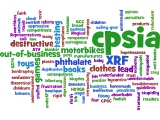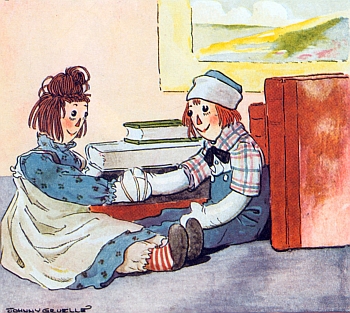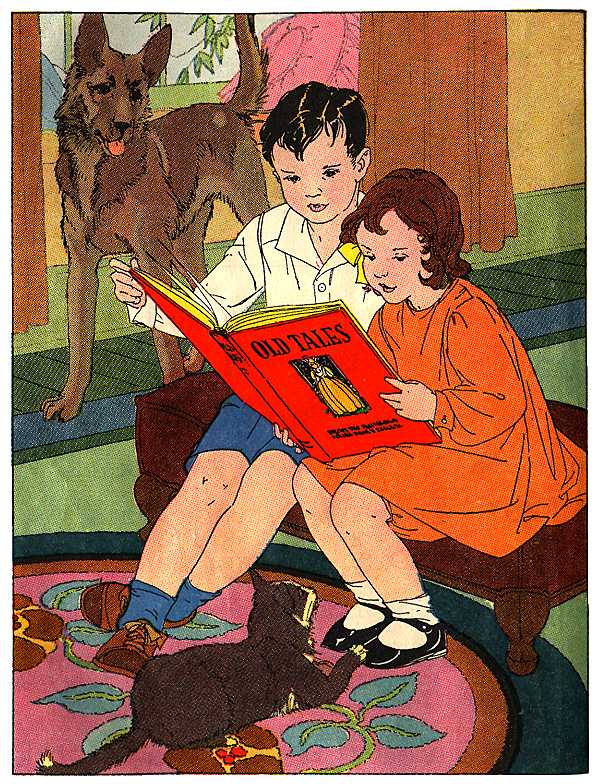An audio is now up of my guest appearance yesterday on Hugh Hewitt’s radio show. And Canadian blogger Charles Henry has generously compiled a transcript of the segment, an especially useful resource because he’s embedded relevant links. He’s also posted a transcript of another segment of the show in which attorney/guest Gary Wolensky talks about this week’s big library/CPSC outcry, as well as vacant toy shelves (“That’s A CPSIA Toy, We Can’t Sell It To You“).
Posts Tagged ‘CPSIA and Congress’
CPSIA “people’s hearing” in D.C. April 1, and other protests
Coming up April 1, but not a joke: Since Henry Waxman and other CPSIA defenders on Capitol Hill are still stonewalling demands for hearings on the law’s catastrophic effects, some citizen-activists are preparing an alternative event for the nation’s capital in which persons from many affected constituencies will have a chance to tell their stories; there may also be “rally” activities, as well as events in other states for those who find it more convenient to protest there. Rick Woldenberg has details. (Update: rally now has its own site, AmendTheCpsia.com; Facebook event page]
In the powersports world, DealerNews reports that on March 19 — that’s this coming Thursday — “California motorcycle dealer and industry icon Malcolm Smith says he plans to sell kid’s ATVs and motorcycles to consumers” in defiance of the law. No word yet on whether or not PIRG or Public Citizen will try to have him arrested, but the penalties for willful violation of the law include five-year prison sentences as well as prohibitive fines. (More: Read Deputy Headmistress to learn more about Malcolm Smith and the history of kids’ dirtbiking and BMX (bicycle motocross) — Steve McQueen figures in it — as well as Sen. Klobuchar’s defense of the law)

Finally, those doing CPSIA activism may be interested in the colorful word-cloud poster/graphic that Whimsical Walney did up the other day.
CPSIA: getting Washington’s attention

Given that nearly every member of Congress voted for CPSIA last year, it’s not surprising that that body of lawmakers was slow to respond to reports of the law’s catastrophic consequences. It’s beginning to happen now, though. Republicans have been in the lead, the latest sign being a strong letter from ranking House Commerce minority members Reps. George Radanovich (R-Calif.) and Joe Barton (R-Calif.) asking for a hearing. The motorcycle/powersports issue has also kindled widespread interest from Hill members (example: Rep. Michael Simpson, R-Idaho).
On March 4 there was a welcome break in the ice on the Democratic side as well. Rep. John Dingell (D-Mich.) sent a letter to the commissioners of the CPSC that, although cautiously worded, acknowledges many of the reports of calamitous consequences from around the country, something that his colleagues Rep. Henry Waxman (D-Calif.), Rep. Bobby Rush (D-Ill.) and Rep. Jan Schakowsky (D-Ill.) have been unwilling to do (when not dismissing those reports as based on misinformed or uninformed rumor). Of course, there is famously no love lost between Dingell and Waxman, who ousted him as Commerce chair. But Dingell’s stand could give cover for other Democrats to join in heeding the public outcry as legitimate. That letter in turn has prompted many CPSIA critics to write Dingell letters in hopes of arming him with more facts and arguments on the law’s ill effects: see in particular Rick Woldenberg and Wacky Hermit.
Waxman, for his part, has announced his intent to hold no hearing on the law until the Obama Administration installs a new chair at the Consumer Product Safety Commission. That serves the multiple functions of 1) stalling (while more small enterprises are driven out of business and thus are neutralized as political threats); 2) reinforcing the impression that the ball is in someone else’s court on addressing the law’s harms; 3) assisting in orchestrating whatever hearing is eventually held, since he expects an ally of his own to be installed as CPSC chair (the ultimate nightmare for CPSIA critics in that job would be someone like Pamela Gilbert, the class action lawyer, former plaintiff’s-lawyer lobbyist, and longtime Litigation Lobby figure who ran the Obama transition effort for the agency).
The membership of the House Energy and Commerce Committee, by the way, is listed here (hit “membership”; scroll to “Subcommittee on Commerce, Trade, and Consumer Protection” to find the members most directly involved). The membership of the Senate Commerce Committee is listed here and that of the Subcommittee on Consumer Protection, Product Safety and Insurance here.
Some miscellaneous weekend reading about the law: John Markley, Bureaucrash; Michael Maletic (Weil Gotshal & Manges), Republican National Lawyers Association; Ed Driscoll, Pajamas Media.
Public domain graphic: Grandma’s Graphics, Ruth Mary Hallock.
CPSIA and motorsports: jamming the spokes
Losses are mounting and anger rising in the world of youth minibikes and powersports, where CPSIA has kept an entire industry shut down for more than a month now, as dealers sit on $100-million-plus inventories now rendered unlawful to sell.  On Sunday the Minneapolis Star-Tribune ran a substantial piece on the CPSIA debacle which focused on motorsports (while also mentioning in passing such disaster areas as thrift stores and kids’ books). The rising outcry is putting Minnesota Democratic Sen. Amy Klobuchar on the hot seat: after taking a prominent role as co-sponsor of the law, she now blames the Consumer Product Safety Commission for the way it’s working out in practice. Aside from the general popularity of kids’ motorsports in Minnesota, ATV manufacturer Polaris, whose Outlaw 50 model was suddenly banned, is headquartered in that state.
On Sunday the Minneapolis Star-Tribune ran a substantial piece on the CPSIA debacle which focused on motorsports (while also mentioning in passing such disaster areas as thrift stores and kids’ books). The rising outcry is putting Minnesota Democratic Sen. Amy Klobuchar on the hot seat: after taking a prominent role as co-sponsor of the law, she now blames the Consumer Product Safety Commission for the way it’s working out in practice. Aside from the general popularity of kids’ motorsports in Minnesota, ATV manufacturer Polaris, whose Outlaw 50 model was suddenly banned, is headquartered in that state.
On Wednesday the CPSC confirmed that (per its lawyers’ advice) it was turning down an exemption for youth power vehicles, in that it could not certify what the law requires it to certify, namely that keeping them legal would not result in “any” absorption of lead by a person under 12, ever, or any other risk to public safety or health. Cycle News delves into the details here (with a funny picture) and here. Ryan Leyba at ESPN/FMX also surveys the situation in Congress — where they’re refusing to do anything and, like Klobuchar, blaming the CPSC’s lawyers — and quotes one dealer:
“Business was already slow, and now we’re just dead,” says Gus Saba, general manager of Corona Motorsports in Corona, California. “A lot of people want to get back into the sport [ATVs or dirtbikes] with their kids, and if they can’t buy a bike for their kid, they might not buy one for themselves, either. It’s a mess. We can’t order parts, we can’t service anything. We don’t know what’s going to happen; no one can put a timetable on it.”

Missouri is another state where the minibike community has been hard at work organizing, and the Associated Press, which in general has been a poor place to turn for news on CPSIA, covered the resulting rally in Jefferson City, in an article that got good national pickup. The Missouri House of Representatives has passed a resolution of support. And 2WheelTuesday offers “Stories of a Motocross Generation“: first-person responses to the ban.
Some miscellaneous CPSIA reading: Rick Woldenberg is introducing “our fabulous new Future World Collection of exciting educational materials for the post-CPSIA world. Our products will be lead-free and phthalates-free and in the case of most products, entirely play value-free.” The tongue-in-cheek “catalogue” can be seen here (PDF). At Politico, conservative columnist Hugh Hewitt blasts Congress for its inaction. The Hill covers the Washington wrangling. Punditry by the Pint says “it’s time to repeal this law.” And Scott Greenfield writes, “The Real Risk is the Loss of Childhood Happiness“.
P.S. CPSC has made available videos of its meetings with industry on bicycles and ATVs.
CPSIA: “We are sorry to report…”
Fewer options for kids in Santa Rosa, California:
We are sorry to report that Eleven 11 Kids has been forced to close its doors as of February 10, 2009 due to the new federal children’s environmental law, CPSIA, (HR4040) that went into effect on 2/10/09.
And then the store explains in some detail why it felt it had to close. It is too polite, perhaps, to mention that both California senators, Barbara Boxer and Dianne Feinstein, played prominent roles in getting CPSIA passed, with Boxer in particular pushing the retroactive phthalates ban that has been notably harmful to resellers.

At ShopFloor, Carter Wood writes that the Senate version of the bill was (even) more extreme in its provisions than the House version, and that the Senate version unfortunately “wound up playing a bigger role in the writing of the final bill”. The Hospice of Amador and Calaveras Thrift Store, in California’s Sierra Nevada, is still operating but has stopped carrying children’s items.
In Ellensburg, Washington, north of Yakima, Cheryl Smith was “living the American dream” with her store Hailina’s Closet, which “opened last April and [sold] gently used children’s clothing and toys.” But it is just a memory now. The Kitsap Sun reported that Perfect Circle, a Bremerton children’s consignment store, also had to go out of business.
A few more reports from Goodwill: Roanoke, Virginia, Le Mars, Iowa (rare good news, some items being put back on shelves), Rock County, Wisconsin.
CPSIA chronicles, February 27

- Finally! Today’s Boston Globe covers the thrift-store calamity:
In recent weeks, Goodwill pulled all children’s merchandise from its nine stores in the state. Thrift chain Second Time Around eliminated kids’ clothing from several of its 16 shops. St Vincent de Paul is currently removing children’s clothing with metal zippers, buttons, and painted fabrics from its processing center, which sends out merchandise to its six stores in Massachusetts.
It’s exactly the sort of coverage that’s been overdue in the biggest newspapers since Feb. 10: well-reported, making clear the human costs of the law for both cash-strapped shoppers and charitable sponsors, and including words like “devastating” and “heartbreaking”. And on page one.
- If you missed it yesterday, Overlawyered gets results! Although sometimes the opposite of the kind we intend. Yesterday we hailed as a breakthrough the House Small Business Committee’s willingness to hold a hearing next week on the costs of CPSIA. Within a few hours, as Rick Woldenberg relates, Congressional staffers hastily put out word that they were canceling the hearing and that the idea is “not likely to ever be brought back”. There’s no way for us to know just who placed the phone call, but odds are good it was someone who realized that letting people from around the country get in front of a microphone and talk about this law’s effects would not exactly do wonders for the image of Henry Waxman, Bobby Rush, Jan Schakowsky, Public Citizen, PIRG, or their allies. More on the cancellation from Rick Woldenberg, who reports that this is the third time he’s been disinvited from Capitol Hill testimony. Sounds like someone really dislikes the message he would deliver.
- Hair bow makers on the verge of a nervous breakdown.
- The Examiner, which has a wide readership in Washington, D.C., San Francisco, and other cities, is out today with a great editorial on CPSIA which also generously directs readers to this site and its “chilling” reports. It concludes: “This law is an utter disaster. Congress ought to fix it, immediately.” The Examiner also quotes Sen. Mark Pryor (D-Ark.), one of the law’s sponsors, as saying “the law allows the CPSC to make ‘commonsense exceptions’ to anti-lead requirements.” This is not the first time I have been obliged to wonder whether Sen. Pryor actually has a close familiarity with the terms of the bill he helped guide to passage, and if not, whose summaries he has been relying on when he talks to the press.

It is precisely because the law does not confer on the CPSC any “commonsense exception” authority that the commission was obliged to turn down the makers of kids’ minibikes in their plea for an exemption the other day. Same for many other instances that could be cited, such as the pre-1985 books and the size 10 winter coats with zippers and snaps that are being yanked from thrift store shelves. Had the commission such a “commonsense exception” discretion, it would almost certainly have acted by now to defuse these sources of public outcry. To repeat the question: who does Sen. Pryor rely on for his briefings? - Speaking of products with vanishingly low risk of poisoning that have trouble obtaining commonsense exemptions, we’ve been remiss in not staying on the case of ballpoint pens, mentioned in our Feb. 6 and Feb. 13 roundups. Deputy Headmistress has quite a bit more on the legal limbo occupied by the writing implements, which appear now to be unlawful when intended primarily for under-12 use. And visitor “Scott” wrote last week in our comments section:
What still amazes me is that the story about ballpoint pens being in violation of the CPSIA isn’t getting more notice. The CPSC admits that ballpoint pens intended for children are covered. As it happens, the US trade association for the makers of pens, pencils and erasers has sent a letter to the CPSC that ballpoint pens are not-compliant and no existing alloy satisfies the lead limits. It may take 2 years to develop an alloy, if one exists. I can only conclude that there must be very very very many stores not in compliance and ‘poisoning’ our children with lead. Are these stores not facing strict liability and risking felony criminal liability including 5 years in prison and $250,000 fines? The stay by the CPSC doesn’t help the pen-makers or sellers, because they’re in knowing violation of the lead limits. All they can hope for is that none of the 50 state attorney generals decides to prosecute what would appear to be a slam-dunk case. There is a chance that the CPSC may eventually decide to make an exemption for pens, however the CPSC admits that its staff is ‘not yet aware of any substance as to which the required showing [of no absorption of any lead into the human body] can be made.’.


CPSIA chronicles, February 26

- UPDATE 5:45 p.m. Eastern: Well, that was quick. A source reports that Congressional staffers hastily announced that they’re canceling the hearing next week and that the idea is “not likely to ever be brought back”. Someone must have realized that letting people from around the country get in front of a microphone and talk about the effects of this law would not exactly do wonders for the image of Henry Waxman, Public Citizen, PIRG, or Consumer Federation of America. More: Rick Woldenberg confirms cancellation/disinvitation.
- A prime objective for critics of the Consumer Product Safety Improvement Act in recent weeks has been to obtain a hearing on Capitol Hill that might focus lawmaker and press attention on the law’s many unexpected and harmful effects. Now it looks as if that might be happening. Rick Woldenberg:
I have been invited to testify before the Subcommittee on Regulations and Healthcare of the House Committee on Small Business next Thursday. The purpose of this hearing is to explore Small Business issues related to the CPSIA. The Subcommittee is still looking for small businesses to testify. … If you are motivated to testify, you may want to reach out to the Subcommittee staff to volunteer, or if you have a Congressman on the Subcommittee, contact their Washington office urgently. …
- Relatedly, Whimsical Walney, whose time seems to have been in part freed up for blogging by the CPSIA-induced shutdown of her Bay-Area-based children’s line, offers some advice here and here on how to talk with lawmakers about the act.
- If you still haven’t taken a look at it, Daniel Kalder’s excellent BooksBlog entry in The Guardian (U.K.) on CPSIA and older books, which quotes from my City Journal article, is here. It’s drawn attention around the world, including places like France, Italy, and Romania.
- Speaking of books, America’s libraries appear to have dodged catastrophe for now with the help of the American Library Association’s (understandable under the circs) last-minute embrace of the position that unless someone announces otherwise, it’s going to assume the law doesn’t apply to library stacks or circulation (earlier; commentary on the shift, Deputy Headmistress and Rick Woldenberg). Thus: Cincinnati Enquirer (“We’re hopeful saner heads will prevail and they’ll exempt us,” says Emily Sheketoff of the ALA), Middletown (Ohio) Journal, Brown County, Ohio, News-Democrat.
So it seems to be mostly the librarians who are the most literal-minded and obedient about following guidance from high government authorities, or who are most legally risk-averse, or something, who are taking drastic steps like tarping over their pre-1985 stacks or planning to discard the volumes entirely or excluding older kids’ books from their used-book sales (in which case they’ll wind up….where?). Esther at Reading Loft/Design Loft has been picturing how libraries will look if they can’t make an exemption stick. And I didn’t notice it when it ran last month, but Annoyed Librarian had a funny rant at Library Journal about the law. Perish the thought, of course, that any library might ever want to acquire a pre-1985 book for kids’ use. - Popular conservative talk host Hugh Hewitt has continued his coverage of the law. Per one transcript, he discussed it with star columnist Mark Steyn who knew about the youth motorsports debacle:
In my little corner of New Hampshire, every 12-year old boy loves taking an ATV, loves riding it around up in the hills. And the idea that the lead in it is going to cause that kid to keel over, is preposterous. This is government by insanity…
On the other hand, Mark Riffey passes along word that popular talker Glenn Beck doesn’t plan to cover the issue because “there’s no public outcry” (a paraphrase second-hand of what might be a staffer’s view, or his, it’s not clear). What? Does he restrict his reading diet to the New York Times?
- Wacky Hermit at Organic Baby Farm is angry: “When you have to consult a lawyer before you hold a church benefit sale, you are not in America.” (some rude language).
- In the first-linked item above, Woldenberg also reports on an announcement by the Consumer Product Safety Commission’s chief of enforcement, Gib Mullan, that the commission intends to shift its enforcement methods in a more punitive direction, handing out many more penalties than previously in order to achieve more deterrent effects on businesses of all sizes. This is well in line with the clear guidance the commission has been given by Henry Waxman and colleagues in Congress. Next Thursday, if those planning the hearing do their jobs right, many in Congress might for the first time hear some voices that no one thought to consult when the law hurtled toward passage last summer. [REPEATING THE UPDATE: Hearing reportedly canceled.]

Public domain images: Grandma’s Graphics, Mabel Betsy Hill and Elson’s Basic Readers.
CPSIA: fifty stars and an asterisk
Fifty glimpses of the law and its impact, plus one at the end for D.C:
Hawaii: Kailua doll shop closes despite CPSC enforcement stay (w/video); Honolulu Honey Baby shakes leis and hula skirts in dismay;
Alaska: “Why you should care about CPSIA, and what you can do about it”.
Washington: Don’t miss this helmet anecdote from Whitman County;
Oregon: Milagros Boutique of Portland: “One of our local vendors has decided to throw in the towel rather than wait and see if the CPSIA is amended.”
California: Thanks to stay, Whimsical Walney will close down only temporarily, not permanently;
Utah: “We will have to lock our doors and file for bankruptcy,” said Shauna Sloan, founder of Utah-based children’s resale chain Kid to Kid. Glory Quilts: “My longest blog post ever — and the most angry“;
Colorado: Emily Werner: “Today, I have diaper making to do. But I also am ready to stuff envelopes“;
Idaho: Squares of Flair, from Eagle, is on the Endangered Whimsy list. And if you’re thinking of making something bulky for children, like a furniture line, have you considered that none of the nation’s lead testing labs are anywhere near Idaho?
Nevada: Let’s hope Sen. Harry Reid is listening to constituent Molly Orr;
Wyoming: For Kooky Dolls it’s a distinctly non-kooky issue;
Montana: Mark Riffey’s Business is Personal (Rescue Marketing) has helped focus blog attention;
Arizona: “No way” Other Mothers resale stores “can be completely compliant”;
New Mexico: Fashion Incubator and National Bankruptcy Day;

Oklahoma: Farewell jingle dresses, powwow dance clothes, buckskin leggings, concho belts and other Native American celebratory kids’ gear;
Texas: Distress sale at My Pink Zebra Boutique in Katy;
Kansas: Owner of Baxter Springs company that makes organic nursing pillows doesn’t think threat of being “hauled off to prison” is very constructive;
Nebraska: Omaha-connected Baby Leather Moks is on Endangered Whimsy list;
North Dakota: Sunrise Hill Decor, making blocks for play or display, is member of the Handmade Toy Alliance;
South Dakota: Question after our own heart: what would Laura Ingalls Wilder have thought of this law?
Iowa: I may know there are no phthalates or lead in that whimsical chenille baby bib, and you may know it, but have you documented it to the satisfaction of the wary retailer’s lawyers?
Minnesota: Things seem to be going great, with your product line featured on the Martha Stewart show. And then this happens (auto-plays video);
Missouri: Fleece scarves, going too cheap;
Illinois: List-keeping in Naperville. Oprah, please help!
Wisconsin: Owner of Jacobsen Books in Clinton is also worried about small-run adaptive devices used by special needs children;
Indiana: Rebecca Holloway gives ’em a deserved slamming; doll outfits and hair bows;
Ohio: Nicer-than-mass-produced diaper covers; Toledo Physical Education Supply takes a hit;
Michigan: Brandi Pahl wonders: What are they thinking?; NARTS efforts couldn’t save Ionia resale store;
Arkansas: Closing of A Kidd’s Dream consignment shop in Conway doesn’t seem to have done much to change Sen. Mark Pryor’s mind;
Louisiana: The stay: “Hope but no solution“, kids’ Mardi Gras masks;
Mississippi: Sen. Roger Wicker is co-sponsoring DeMint reform bill;
Alabama: About that stay: “Read the fine print“; at least the pink whale got adopted;
Florida: “Many stores have fallen for the false report from the media that consignment stores are exempt.”
Georgia: Thank you, 11 Alive News, for listening to consignment sellers;
Tennessee: eBay seamstresses and Spanish baby gift sellers watching with concern;
South Carolina: Rock and mineral kits: do not eat contents unless you are at least 12 years of age;
North Carolina: Quilt Baby appeals to reason;
Kentucky: Menace of soft texture block set probably overrated;

Maine: Any reform will come too late for Farmington’s Blessed Baby Boutique, shut down last weekend;
New Hampshire: As Commerce Secretary, d’you think Sen. Gregg could help?
Massachusetts: Rob Wilson of Ashland, importer of earth-friendly toys, has done much to spread the word, and impact on libraries noted in Newburyport;
Vermont: “Somewhere in the neighborhood of 95 percent of the merchants on our site would have to shut down,” says Michael Secore of Craftsbury Kids, with co-owner Cecilia Leibovitz a major spreader of word about the law, ditto Barre’s Polkadot Patch;
Rhode Island: Sens. Sheldon Whitehouse and Jack Reed “don’t seem terribly concerned“.
Connecticut: Stamford maker faces $400 testing bill for each $360 run of bibs and napkins, while paperback exchange owner in Bethel terms application of law “insane“;
New York: Issue has captured attention of book publishers, if not of certain newspaper publishers;
New Jersey: You made play food for kids out of felt? No wonder Rep. Waxman is so worried they’ll eat it!
Delaware: Wilmington store Yo-Yo Joe’s is a member of the Handmade Toy Alliance;
Pennsylvania: Going out on a limb, Somerset librarian contends most kids are old enough to know not to put the books in their mouths;
Maryland: The Baltimore Etsy Street Team is on the wing;
West Virginia: Project Linus, which does great charity work in the donation of quilts and blankets, puts on a brave face but its friends are worried;
Virginia: Back away from that ribbon hair bow slowly, now, and we’ll just wait for the hazmat team to arrive;
*District of Columbia: Almost forgot Washington, D.C.! Well, in Washington, D.C., it’s easy to get them to pay attention to problems like these. For example, less than a month ago, the offices of Reps. Henry Waxman and Bobby Rush were instructing colleagues that if they get calls from constituents “who believe they may be adversely impacted by the new law,” it was because the constituents had fallen victim to “confusion” and “inaccurate reporting”. The most important advocacy group behind the law, the implacable Public Citizen, has launched a new campaign to defend it from critics; it was PC’s David Arkush who in December notoriously assailed (scroll to #1) “hysteria” about the law on the part of crafters and small businesses, broadly hinting that they were serving as dupes and stooges of Big Toy interests — perish the thought that they might have figured the issue out on their own! Trial-lawyer-defense groups like the misnamed Center for Justice and Democracy (along with their friends) chimed in with the thought that critics of the law needed to “grow up” (no, don’t bother commenting). CPSC Commissioner Thomas Moore, hewing to a similar line, blames the ongoing ruckus on “orchestrated campaigns to undermine the Act” that “are sowing the seeds of confusion that are upsetting so many small businesses.” Lobbyists and trade associations for mass-production importers and merchandisers are eager to prove their cooperation with the powers that be: “We were early proponents of mandatory laws to require toy testing,” said a Toy Industry Association spokesman the other day.
Washington, D.C. always does so well at listening to the rest of the country.
CPSIA chronicles, February 5

Five days until the law’s effective date, and far more to round up than space allows:
- Hundreds rally in front of Macy’s in New York’s garment district to protest the law [AP/AM New York; pic, and estimate of crowd at 1,000, at Publisher’s Weekly] Plans for Feb. 10 day of protest [Fasanella/Fashion Incubator]
- Several Senators are reported to have joined as sponsors of Sen. DeMint’s reform bill, which his staff says he wants to offer as an amendment to the stimulus bill (more). More welcome news: Sen. Orrin Hatch (R-Utah) calls for hearings on CPSIA [his office].
- “Using a bazooka to kill a (lead-free) gnat”: the inimitable Prof. Richard Epstein on the law’s high costs and low benefits [Forbes.com]. “Huge job losses” could result unless Congress goes back to drawing board
[Quin Hillyer, Washington Examiner, and more at American Spectator] More from Iain Murray at National Review “Corner” [here and here] and much coverage from Carter Wood at NAM “ShopFloor” as well. - At Crooked Timber, generally a pro-regulation site, John Holbo looks kindly on CPSIA reform — but a guy from PIRG pops right up to defend the measure. Scroll to comments #25 and #28 for good comments by familiar names, and then to Holbo’s own #30 (“I’m increasingly convinced that this is an unusually horrible law.”)
- Reps. Rush and Waxman, Sens. Rockefeller and Pryor blame the whole mess not on their own offices’ drafting, but on CPSC Commissioner Nancy Nord, who resisted many of the law’s extreme provisions, and they demand her ouster [Little Ida]. CPSC Commissioner Thomas Moore likes the law just fine as is, which may help explain why Waxman et al. didn’t call for his head [same]. And yet another “we’re calling the shots here, but any failures are your fault” letter from Rush, Waxman et al to CPSC [Fashion Incubator]. NPR Marketplace’s coverage tends, with the law’s advocates, to promote the “inept agency” rather than the “insanely drafted law” narrative;
- A news account in the WSJ attributes last Friday’s stay to “pressure from manufacturers”, with no mention of grass-roots movement at all. Lame. Meanwhile, CNNMoney quotes safetyists and trade associations, but not small producers, leaving readers clueless about costs. USA Today does a better job at presenting all sides.
- The ultimate acronym? “Congress Passes Stupid Ill-conceived Act” [Three By Sea]
- Rick Woldenberg and Heartkeeper Common Room have both been incisively taking on and refuting the assertions of the law’s diehard promoters, namely, the groups like PIRG, Public Citizen and Consumers’ Union; check out both sites and scroll through multiple posts. And Kathleen Fasanella’s Fashion Incubator promises to stay on top of activist and protest developments.
Public domain image, Ruth Mary Hallock: Grandma’s Graphics.
CPSIA links
Away from my desk for three days, and just catching up with the flow of commentary on the issue:
- Too much reporting in local press sources to round up, but check out, e.g., the Knoxville News-Sentinel, Fredericksburg (Va.) Freelance-Star, Arizona Republic, and Nashville Business Journal. Carter Wood at ShopFloor links to excellent coverage in, among other places, the Grand Rapids, Mich. (Jennifer Ackerman-Haywood, “Running with Needles”) and Portland, Maine newspapers.
- Law compared to “an anvil on a onesie” [Small Things Considered; more; via]. Crafts-market site Etsy has an interesting thread on vintage sellers and the law, among many other valuable forum discussions.
 Mami Mobile rounds up many links from affected bloggers. More: Daily Grind of a Work at Home Mom, Eve Tushnet (scroll to Jan. 15), Kim’s Play Place with many updates, and Evolving Excellence.
Mami Mobile rounds up many links from affected bloggers. More: Daily Grind of a Work at Home Mom, Eve Tushnet (scroll to Jan. 15), Kim’s Play Place with many updates, and Evolving Excellence. - Until only weeks ago, Henry Waxman and his allies were blasting the beleaguered leadership of the CPSC for not being tough enough on producers of kids’ goods; now Waxman seeks to reposition himself as favoring deregulatory steps that the Commission has unaccountably failed to implement. Some appear to be taken in by this imposture, but not blogger Common Room, who has been doing a series of posts documenting why Waxman and his Congressional colleagues were and are the key decision-makers and ought not to be allowed to shift the responsibility to others;
- Who’s dug in to the “great law, no need to change, only evildoers oppose it” position? Well, there are the trial-lawyer-allied, student-fee-funded PIRG groups (Seattle Times), and, even more stridently, the trial-lawyer-defense outfit Center for Justice and Democracy (The Pop Tort). Eric Husman and Common Room have taken a look at the law’s supporters as well. But note an exception: InjuryBoard, the large online trial lawyer site, just ran a surprisingly open-minded interview with anti-CPSIA activist Kathleen Fasanella of Fashion Incubator;
- “[T]he only feasible alternative is for Congress to delay implementation. Many in Congress will not agree to this, in part, because of pressure from the consumer groups ….However, Congress may do something this week or next to either clarify the law, give further guidance on legislative intent to the CPSC, or maybe even delay implementation.” [Ross/Product Liability Prof Blog]. More from the law and policy blog world: Prince/PLProf; Bader/CEI “Open Market”; Bill Childs, TortsProf.
